#pay debt
Text
the thing about art is that it was always supposed to be about us, about the human-ness of us, the impossible and beautiful reality that we (for centuries) have stood still, transfixed by music. that we can close our eyes and cry about the same book passage; the events of which aren't real and never happened. theatre in shakespeare's time was as real as it is now; we all laugh at the same cue (pursued by bear), separated hundreds of years apart.
three years ago my housemates were jamming outdoors, just messing around with their instruments, mostly just making noise. our neighbors - shy, cautious, a little sheepish - sat down and started playing. i don't really know how it happened; i was somehow in charge of dancing, barefoot and laughing - but i looked up, and our yard was full of people. kids stacked on the shoulders of parents. old couples holding hands. someone had brought sidewalk chalk; our front walk became a riot of color. someone ran in with a flute and played the most astounding solo i've ever heard in my life, upright and wiggling, skipping as she did so. she only paused because the violin player was kicking his heels up and she was laughing too hard to continue.
two weeks ago my friend and i met in the basement of her apartment complex so she could work out a piece of choreography. we have a language barrier - i'm not as good at ASL as i'd like to be (i'm still learning!) so we communicate mostly through the notes app and this strange secret language of dancers - we have the same movement vocabulary. the two of us cracking jokes at each other, giggling. there were kids in the basement too, who had been playing soccer until we took up the far corner of the room. one by one they made their slow way over like feral cats - they laid down, belly-flat against the floor, just watching. my friend and i were not in tutus - we were in slouchy shirts and leggings and socks. nothing fancy. but when i asked the kids would you like to dance too? they were immediately on their feet and spinning. i love when people dance with abandon, the wild and leggy fervor of childhood. i think it is gorgeous.
their adults showed up eventually, and a few of them said hey, let's not bother the nice ladies. but they weren't bothering us, they were just having fun - so. a few of the adults started dancing awkwardly along, and then most of the adults. someone brought down a better sound system. someone opened a watermelon and started handing out slices. it was 8 PM on a tuesday and nothing about that day was particularly special; we might as well party.
one time i hosted a free "paint along party" and about 20 adults worked quietly while i taught them how to paint nessie. one time i taught community dance classes and so many people showed up we had to move the whole thing outside. we used chairs and coatracks to balance. one time i showed up to a random band playing in a random location, and the whole thing got packed so quickly we had to open every door and window in the place.
i don't think i can tell you how much people want to be making art and engaging with art. they want to, desperately. so many people would be stunning artists, but they are lied to and told from a very young age that art only matters if it is planned, purposeful, beautiful. that if you have an idea, you need to be able to express it perfectly. this is not true. you don't get only 1 chance to communicate. you can spend a lifetime trying to display exactly 1 thing you can never quite language. you can just express the "!!??!!!"-ing-ness of being alive; that is something none of us really have a full grasp on creating. and even when we can't make what we want - god, it feels fucking good to try. and even just enjoying other artists - art inherently rewards the act of participating.
i wasn't raised wealthy. whenever i make a post about art, someone inevitably says something along the lines of well some of us aren't that lucky. i am not lucky; i am dedicated. i have a chronic condition, my hands are constantly in pain. i am not neurotypical, nor was i raised safe. i worked 5-7 jobs while some of these memories happened. i chose art because it mattered to me more than anything on this fucking planet - i would work 80 hours a week just so i could afford to write in 3 of them.
and i am still telling you - if you are called to make art, you are called to the part of you that is human. you do not have to be good at it. you do not have to have enormous amounts of privilege. you can just... give yourself permission. you can just say i'm going to make something now and then - go out and make it. raquel it won't be good though that is okay, i don't make good things every time either. besides. who decides what good even is?
you weren't called to make something because you wanted it to be good, you were called to make something because it is a basic instinct. you were taught to judge its worth and over-value perfection. you are doing something impossible. a god's ability: from nothing springs creation.
a few months ago i found a piece of sidewalk chalk and started drawing. within an hour i had somehow collected a small classroom of young children. their adults often brought their own chalk. i looked up and about fifteen families had joined me from around the block. we drew scrangly unicorns and messed up flowers and one girl asked me to draw charizard. i am not good at drawing. i basically drew an orb with wings. you would have thought i drew her the mona lisa. she dragged her mother over and pointed and said look! look what she drew for me and, in the moment, i admit i flinched (sorry, i don't -). but the mother just grinned at me. he's beautiful. and then she sat down and started drawing.
someone took a picture of it. it was in the local newspaper. the summary underneath said joyful and spontaneous artwork from local artists springs up in public gallery. in the picture, a little girl covered in chalk dust has her head thrown back, delighted. laughing.
#writeblr#warm up#this is longer than i wanted i really considered removing that part about myself and what i went thru#but i think it really fucking bothers me that EVERY time i talk about being an artist#ppl assume i just like. had the skill and ability to drop everything and pay for grad school.#like sir i grew up poor. my house wasn't a safe space. i gave up a FREE RIDE TO LAW SCHOOL. for THIS. bc i chose it.#was it fucking hard? was i choosing the hard thing?? yes.#but we need to stop seeing artists as lazy layabouts that can ''afford'' to just ''sit around and create''#when MANY - if not MOST - of us are NOT like that. we have to work our fucking ASSES off. hard work. long and hard work#part of valuing artists is recognizing the amount we sacrifice to make our art. bc it doesn't just#like HAPPEN to us. also btw it rarely has anything to do with true talent.#speaking as someone with a chronic condition i hate when ppl are like u have it easy. like actively as i'm writing this my hands r#ACTIVELY hurting me. i haven't been posting bc my left hand was curled in a claw for the last week#this isn't fucking luck. after a certain point it's not even TALENT. it's dedication & sacrifice.#''u get to flounce around and do nothing with ur life'' is a narrative that is a direct result of capitalism#imagine if we said that about literally any other profession.#''oh so u give up 10 yrs of ur life to be a doctor? u sacrifice having a social life and u get SUPER in debt?#u need to work countless hours and it will often be thankless? well i wish i was that lucky''#we should be applying that logic to landlords ONLY#''oh ur mom and dad gave u the money to buy a house? and all u did was paint it white and rent it? huh.''
10K notes
·
View notes
Text
Paying consumer debts is basically optional in the United States

The vast majority of America's debt collection targets $500-2,000 credit card debts. It is a filthy business, operated by lawless firms who hire unskilled workers drawn from the same economic background as their targets, who routinely and grotesquely flout the law, but only when it comes to the people with the least ability to pay.
America has fairly robust laws to protect debtors from sleazy debt-collection practices, notably the Fair Debt Collection Practices Act (FDCPA), which has been on the books since 1978. The FDCPA puts strict limits on the conduct of debt collectors, and offers real remedies to debtors when they are abused.
But for FDPCA provisions to be honored, they must be understood. The people who collect these debts are almost entirely untrained. The people they collected the debts from are likewise in the dark. The only specialized expertise debt-collection firms concern themselves with are a series of gotcha tricks and semi-automated legal shenanigans that let them take money they don't deserve from people who can't afford to pay it.
There's no better person to explain this dynamic than Patrick McKenzie, a finance and technology expert whose Bits About Money newsletter is absolutely essential reading. No one breaks down the internal operations of the finance sector like McKenzie. His latest edition, "Credit card debt collection," is a fantastic read:
https://www.bitsaboutmoney.com/archive/the-waste-stream-of-consumer-finance/
McKenzie describes how a debt collector who mistook him for a different PJ McKenzie and tried to shake him down for a couple hundred bucks, and how this launched him into a life as a volunteer advocate for debtors who were less equipped to defend themselves from collectors than he was.
McKenzie's conclusion is that "paying consumer debts is basically optional in the United States." If you stand on your rights (which requires that you know your rights), then you will quickly discover that debt collectors don't have – and can't get – the documentation needed to collect on whatever debts they think you owe (even if you really owe them).
The credit card companies are fully aware of this, and bank (literally) on the fact that "the vast majority of consumers, including those with the socioeconomic wherewithal to walk away from their debts, feel themselves morally bound and pay as agreed."
If you find yourself on the business end of a debt collector's harassment campaign, you can generally make it end simply by "carefully sending a series of letters invoking [your] rights under the FDCPA." The debt collector who receives these letters will have bought your debt at five cents on the dollar, and will simply write it off.
By contrast, the mere act of paying anything marks you out as substantially more likely to pay than nearly everyone else on their hit-list. Paying anything doesn't trigger forbearance, it invites a flood of harassing calls and letters, because you've demonstrated that you can be coerced into paying.
But while learning FDCPA rules isn't overly difficult, it's also beyond the wherewithal of the most distressed debtors (and people falsely accused of being debtors). McKenzie recounts that many of the people he helped were living under chaotic circumstances that put seemingly simple things "like writing letters and counting to 30 days" beyond their needs.
This means that the people best able to defend themselves against illegal shakedowns are less likely to be targeted. Instead, debt collectors husband their resources so they can use them "to do abusive and frequently illegal shakedowns of the people the legislation was meant to benefit."
Here's how this debt market works. If you become delinquent in meeting your credit card payments ("delinquent" has a flexible meaning that varies with each issuer), then your debt will be sold to a collector. It is packaged in part of a large spreadsheet – a CSV file – and likely sold to one of 10 large firms that control 75% of the industry.
The "mom and pops" who have the other quarter of the industry might also get your debt, but it's more likely that they'll buy it as a kind of tailings from one of the big guys, who package up the debts they couldn't collect on and sell them at even deeper discounts.
The people who make the calls are often barely better off than the people they're calling. They're minimally trained and required to work at a breakneck pace. Employee turnover is 75-100% annually: imagine the worst call center job in the world, and then make it worse, and make "success" into a moral injury, and you've got the debt-collector rank-and-file.
To improve the yield on this awful process, debt collection companies start by purging these spreadsheets of likely duds: dead people, people with very low credit-scores, and people who appear on a list of debtors who know their rights and are likely to stand on them (that's right, merely insisting on your rights can ensure that the entire debt-collection industry leaves you alone, forever).
The FDPCA gives you rights: for example, you have the right to verify the debt and see the contract you signed when you took it on. The debt collector who calls you almost certainly does not have that contract and can't get it. Your original lender might, but they stopped caring about your debt the minute they sold it to a debt-collector. Their own IT systems are baling-wire-and-spit Rube Goldberg machines that glue together the wheezing computers of all the companies they've bought over the last 25 years. Retrieving your paperwork is a nontrivial task, and the lender doesn't have any reason to perform it.
Debt collectors are bottom feeders. They are buying delinquent debts at 5 cents on the dollar and hoping to recover 8 percent of them; at 7 percent, they're losing money. They aren't "large, nationally scaled, hypercompetent operators" – they're shoestring operations that can only be viable if they hire unskilled workers and fail to train them.
They are subject to automatic damages for illegal behavior, but they still break the law all the time. As McKenzie writes, a debt collector will "commit three federal torts in a few minutes of talking to a debtor then follow up with a confirmation of the same in writing." A statement like "if you don’t pay me I will sue you and then Immigration will take notice of that and yank your green card" makes the requisite three violations: a false threat of legal action, a false statement of affiliation with a federal agency, and "a false alleged consequence for debt nonpayment not provided for in law."
If you know this, you can likely end the process right there. If you don't, buckle in. The one area that debt collectors invest heavily in is the automation that allows them to engage in high-intensity harassment. They use "predictive dialers" to make multiple calls at once, only connecting the collector to the calls that pick up. They will call you repeatedly. They'll call your family, something they're legally prohibited from doing except to get your contact info, but they'll do it anyway, betting that you'll scrape up $250 to keep them from harassing your mother.
These dialing systems are far better organized than any of the company's record keeping about what you owe. A company may sell your debt on and fail to keep track of it, with the effect that multiple collectors will call you about the same debt, and even paying off one of them will not stop the other.
Talking to these people is a bad idea, because the one area where collectors get sophisticated training is in emptying your bank account. If you consent to a "payment plan," they will use your account and routing info to start whacking your bank account, and your bank will let them do it, because the one part of your conversation they reliably record is this payment plan rigamarole. Sending a check won't help – they'll use the account info on the front of your check to undertake "demand debits" from your account, and backstop it with that recorded call.
Any agreement on your part to get on a payment plan transforms the old, low-value debt you incurred with your credit card into a brand new, high value debt that you owe to the bill collector. There's a good chance they'll sell this debt to another collector and take the lump sum – and then the new collector will commence a fresh round of harassment.
McKenzie says you should never talk to a debt collector. Make them put everything in writing. They are almost certain to lie to you and violate your rights, and a written record will help you prove it later. What's more, debt collection agencies just don't have the capacity or competence to engage in written correspondence. Tell them to put it in writing and there's a good chance they'll just give up and move on, hunting softer targets.
One other thing debt collectors due is robo-sue their targets, bulk-filing boilerplate suits against debtors, real and imaginary. If you don't show up for court (which is what usually happens), they'll get a default judgment, and with it, the legal right to raid your bank account and your paycheck. That, in turn, is an asset that, once again, the debt collector can sell to an even scummier bottom-feeder, pocketing a lump sum.
McKenzie doesn't know what will fix this. But Michael Hudson, a renowned scholar of the debt practices of antiquity, has some ideas. Hudson has written eloquently and persuasively about the longstanding practice of jubilee, in which all debts were periodically wiped clean (say, whenever a new king took the throne, or once per generation):
https://pluralistic.net/2020/03/24/grandparents-optional-party/#jubilee
Hudson's core maxim is that "debt's that can't be paid won't be paid." The productive economy will have need for credit to secure the inputs to their processes. Farmers need to borrow every year for labor, seed and fertilizer. If all goes according to plan, the producer pays off the lender after the production is done and the goods are sold.
But even the most competent producer will eventually find themselves unable to pay. The best-prepared farmer can't save every harvest from blight, hailstorms or fire. When the producer can't pay the creditor, they go a little deeper into debt. That debt accumulates, getting worse with interest and with each bad beat.
Run this process long enough and the entire productive economy will be captive to lenders, who will be able to direct production for follies and fripperies. Farmers stop producing the food the people need so they can devote their land to ornamental flowers for creditors' tables. Left to themselves, credit markets produce hereditary castes of lenders and debtors, with lenders exercising ever-more power over debtors.
This is socially destabilizing; you can feel it in McKenzie's eloquent, barely controlled rage at the hopeless structural knot that produces the abusive and predatory debt industry. Hudson's claim is that the rulers of antiquity knew this – and that we forgot it. Jubilee was key to producing long term political stability. Take away Jubilee and civilizations collapse:
https://pluralistic.net/2022/07/08/jubilant/#construire-des-passerelles
Debts that can't be paid won't be paid. Debt collectors know this. It's irrefutable. The point of debt markets isn't to ensure that debts are discharged – it's to ensure that every penny the hereditary debtor class has is transferred to the creditor class, at the hands of their fellow debtors.
In her 2021 Paris Review article "America's Dead Souls," Molly McGhee gives a haunting, wrenching account of the debts her parents incurred and the harassment they endured:
https://www.theparisreview.org/blog/2021/05/17/americas-dead-souls/
After I published on it, many readers wrote in disbelief, insisting that the debt collection practices McGhee described were illegal:
https://pluralistic.net/2021/05/19/zombie-debt/#damnation
And they are illegal. But debt collection is a trade founded on lawlessness, and its core competence is to identify and target people who can't invoke the law in their own defense.

Going to Defcon this weekend? I’m giving a keynote, “An Audacious Plan to Halt the Internet’s Enshittification and Throw it Into Reverse,” today (Aug 12) at 12:30pm, followed by a book signing at the No Starch Press booth at 2:30pm!
https://info.defcon.org/event/?id=50826

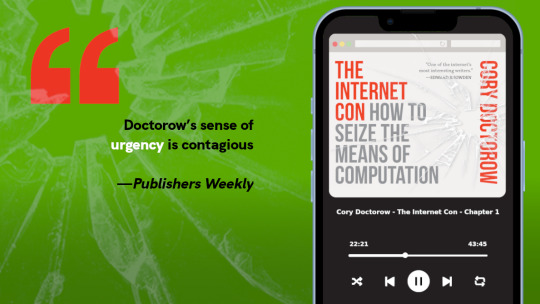
I’m kickstarting the audiobook for “The Internet Con: How To Seize the Means of Computation,” a Big Tech disassembly manual to disenshittify the web and bring back the old, good internet. It’s a DRM-free book, which means Audible won’t carry it, so this crowdfunder is essential. Back now to get the audio, Verso hardcover and ebook:
http://seizethemeansofcomputation.org

If you’d like an essay-formatted version of this post to read or share, here’s a link to it on pluralistic.net, my surveillance-free, ad-free, tracker-free blog:
https://pluralistic.net/2023/08/12/do-not-pay/#fair-debt-collection-practices-act
#pluralistic#jubilee#debts that cant be paid wont be paid#Patrick McKenzie#patio11#bits about money#debt#debt collection#do not pay#bottom feeders#Fair Debt Collection Practices Act#fdcpa#finance#armbreakers
11K notes
·
View notes
Text
Pretty much Tango last session: 🙏

#secret life fanart#secret life spoilers#secret life#secret life tango#tango#tangotek#tangotek fanart#mcyt#mcyt fanart#the art of the deal#poor tangos gonna have so many debts to pay next session 😔😂
2K notes
·
View notes
Text

inspired by @/mugentakeda's Jet + Iroh hostility doodles but I made it lesko (lesbian jetko) because. I can
#jetko#jet atla#allgremlinart#ok no more art for you guys for like a month. I have to finish these commissions so I can#pay off my student debt <- barely joking#yes their names r the same.. YES Iroh isnt genderswapped in this. its funnier.#hm.. Ba Sing Se lesbian Jet/Zuko/Jin love triangle... a race to see who can get this horrible girl to that fountain lantern place first..
1K notes
·
View notes
Text




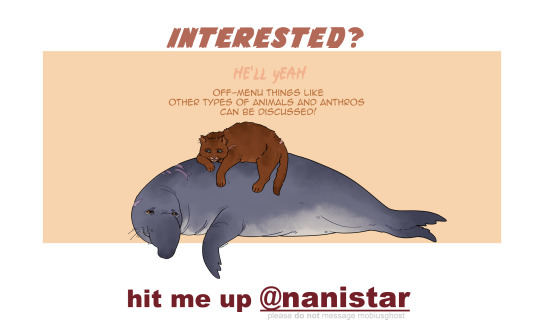
new year, new commission post and prices.
i'm willing to discuss most off-menu things as well as discounts for bulk orders of things like little guys, so don't hesitate to ask!
message me here @nanistar if you are interested!
#commissions#i didnt want to raise my prices but im 7k in medical debt and have until this october to pay it soooo i kinda have to#i also dont really want to offer paintings bc im nervous about them but again. need the money lol#please do not message my main blog with commission requests#it will get buried under the shitposts i send back and forth w my friends and also i want all my business stuff connected with this account
787 notes
·
View notes
Text
When Jason died, he was an organ donor.
When Danny died in the portal incident, he needed a new heart.
When Jason got resurrected, his body regrew the organs it needed and healed as best it could.
This is why when Jason was wandering the streets as a zombie, Clark never clued in on it; because he had been made aware that Jason's heart was being transplanted into another young boy. So he heard it begin, and then tuned it out.
Bruce, in his haze of grief, oversaw the operation to place Jason's heart in a boy that could have been his deceased sons twin.
As curious as it was, he never looked into it.
He couldn't.
He buried himself in grief and rage.
Danny received a heart from the perfect donor, and thinks nothing of it until Frostbite commends his twin's sacrifice.
But Danny doesn't have a twin.
Does he?
#dcxdp#dpxdc#dc x dp#dp x dc#danny and jason are twins#their bio mom sold danny to the weird scientists for a weapon she later sold to pay off a debt#story prompt
2K notes
·
View notes
Text
The idea that Jason has a million safe houses doesn't entirely sit right with me so I like to think that he owns entire buildings and apartments and he lets the street kids and working girls and anyone else who needs a place to stay live there. I imagine a lot of people who work for him because they don't have a choice but don't want to hurt other people end up living in the apartments as supervisors, y'know settling disputes between neighbors, passing on messages to hood, looking after the little ones. Word gets around that Hood helps people get real jobs that help people and the company parties get a LOT bigger. They don't need to pay him because he gets all the money he needs by stealing from the rest of Gotham's criminal element and upperclass <3
Really funny to think that the bats try to break into one of his safe houses and instead of Jason it's a group of feral children with knives and women with stilettos as weapons. Unless it's one of the East End heroes, they know which safe houses have civilians in them
#he pays people's college debt too#insurance? he has it covered#they need a car? just borrow one of his#hes the older brother that lets you do whatever you want when he babysits but would kill for you and all he asks is that you don't tell mom#dc#jason todd#Gotham City
596 notes
·
View notes
Text

#ace attorney#miles edgeworth#edgeworth#dick gumshoe#detective gumshoe#meme#edgeworth is about to start paying him debt instead of money
2K notes
·
View notes
Text
It's really hard for me to ask this, but would anyone be able to help me financially get home from work and a doctor's appointment this week? I'm already taking the bus as often as I can, but there isn't one that runs by the time I get off work, and I won't be able to get home otherwise. My next paycheck is expected to drop on the 15th, and I currently only have $5.26 in my bank account. I would really, deeply appreciate any help I can get. Thank you.
cash app: $fattributes
ko-fi: fattributes
paypal: [email protected]
#text#I'm so sorry but I can't ask anyone in my family to help me out#we're all paying off medical debt and pinching pennies#when I started my second job I really thought this wouldn't be an issue anymore#I worded this poorly but I am too stressed out to write a second draft#I'm also so sorry that this is last minute#I was hoping things would be different
489 notes
·
View notes
Text

A Lannister always Drinks and Knows Things or Something like that
🐺STARKS OF WINTERFELL DRAWING HERE
They are all terrible but I love them all so much, they’re consistently making me laugh.. maybe not Cersei too much in the later seasons but Peak Lannister is season 2 in my opinion so! Here’s some season 2 lannisters! (Except Jaime since I’ll have a new post in the future with Prisoner Jaime ) So! Take Jaime in his goldcloak uniform instead!
#game of thrones art#game of thrones#jaime lannister#cersei lannister#tyrion lannister#clash of kings#a song of ice and fire#asoiaf#asoif/got#asoif fanart#got jaime#house lannister#tywin lannister#a lannister always pays their debts#digital art#digital illustration#got art#asoiaf art#game of thrones fanart#lion#illustration#drawing
604 notes
·
View notes
Text
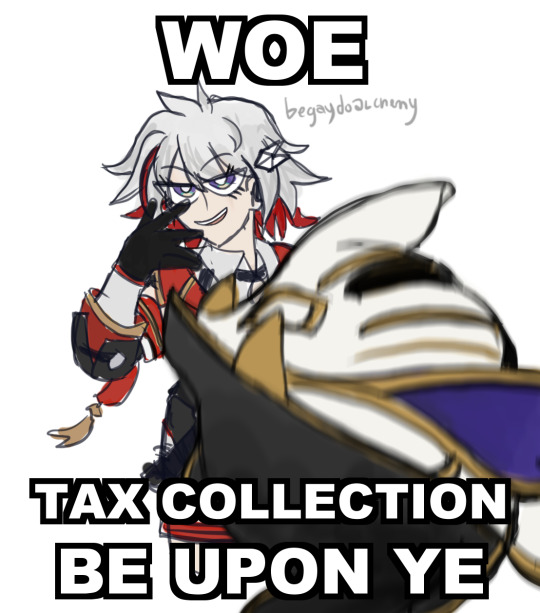
1.4 patch update be like
#eitan's art tag#honkai star rail#hsr fanart#topaz hsr#hsr topaz#i would do anything for her (excluding paying my student loan debt on time)#hsr spoilers /#just in case but i mean she SAYS shes picking up the tab in the trailer so
494 notes
·
View notes
Text

just a bet 🍸🍻🍷
(i know that zoro is more likely to win, but when there is money at stake, nami is unstoppable!)
#sure he will never be able to pay her and his debt is growing bigger each passing day#but she loves having this kind of power over him lmao#zonami#zoro x nami#one piece fanart#nami one piece#roronoa zoro#MY ART
220 notes
·
View notes
Text
Perfect take on Zoro. Perfectly executed by Mackenyu.
The way EVERYONE is trying to have him work for them. Mr 7, I'm here with an invitation. Captain Morgan, Join the marines or you'll die tied to a cross.
Luffy, sets him free, doesn't force him to join, let's him go, let's Zoro decide where he wants to be;
And Zoro finds out that place is by Luffy's side. Ain't that beautiful?
#I shall pay extra attention to see the exact moment Luffy wins him over#This is adorable#I think Zoro went through a lot by himself#He became a pirate hunter out of necessity#I'm sure he had pirate and non pirates trying to recruit him. To have him in their debt.#But Zoro won't follow someone that will take away his freedom and stand in the way of his dream.#God. I love this so. Much.#Thinking about that scene where Luffy just breaking down over Zoro's almost dying state and Nami's losing it bc Luffy could've done smth to#stop it#And Luffy's just like 'I couldn't stand between him and his dream'#And yes!!! That's it!! That's what this always was for both of them#That's the reason why the Pirate hunter the demon the beast the Roronoa Zoro follows Luffy and stays by his side#Fuck me side ways opla thank you you did not fail me on Zoro take#zoro#mackenyu#zolu#ish#§mine#one piece live action#opla s1#text#opla
632 notes
·
View notes
Text
i hate you health insurance i hate you deductibles i hate you credit cards i hate you student loans i hate you capitalist system that mires anyone under a certain income bracket in debt to ensure that you'll never run out of wage slaves
#spitblaze says things#KILLING BITING RIPPING TEARING#IN CREDIT CARD DEBT FOR HAVING THE NERVE TO PAY MY RENT AND SEE THE DOCTOR MORE THAN ONCE EVERY FEW YEARS
880 notes
·
View notes
Photo
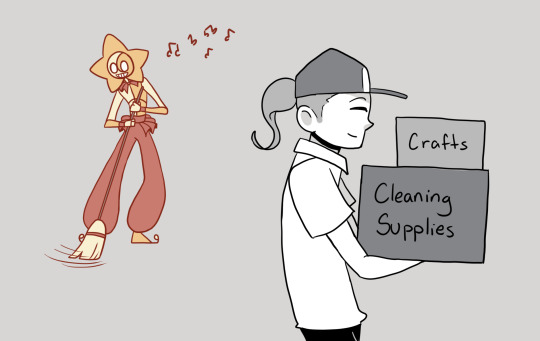
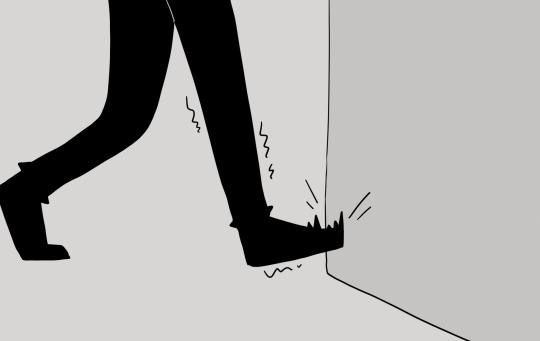
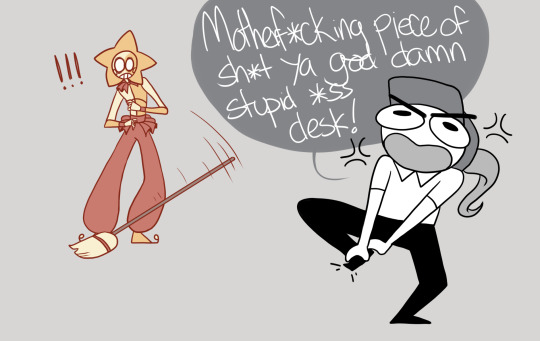
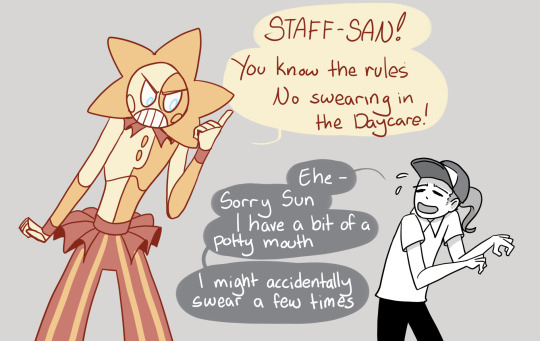
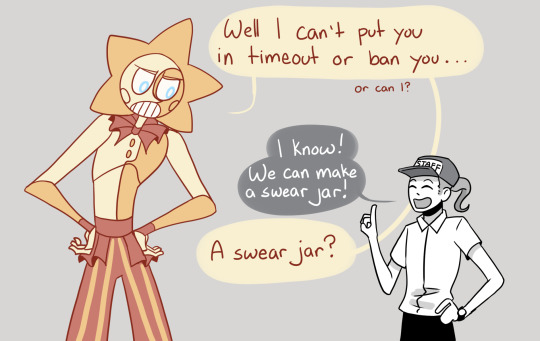

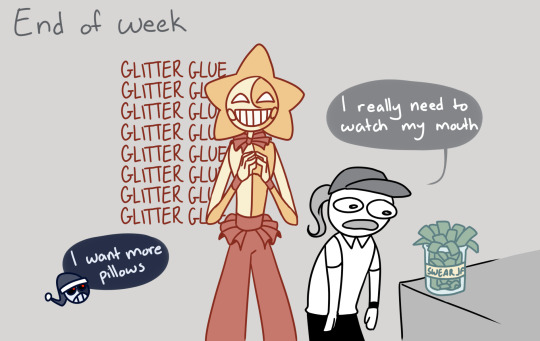
f*ck
#never gonna pay that college debt now#would rather be put in timeout#security and staff au#fnaf sun#fnaf moon#staff-san#fnaf security breach#fnaf daycare attendant#fnaf staff#security breach daycare attendant#security breach#sundrop#moondrop#art of bunmuffin
2K notes
·
View notes
Text
felix was giving advise regarding college and how it’s not for everyone but i guess they didn’t like what he had to say lmao 🙃
#lee felix#skz#he’s right#it’s not for everyone#and there are other people options#people don’t wanna be paying a debt for the rest of their lives#anyways he’s so smart#i hope that stay that asked the question got their answer#video
296 notes
·
View notes